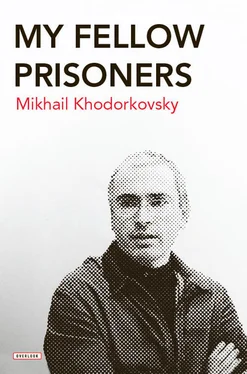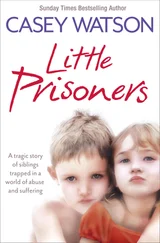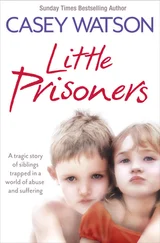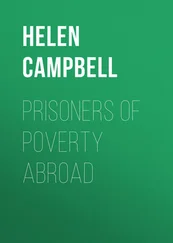And so, the day of the trial. All the principal characters are assembled: the head of the camp, the head of operations, their deputies, with the chairman of the city court presiding.
Lyosha is called to the witness stand. He is clearly confused and frightened. He speaks hesitantly… but he speaks the truth! My lawyer and I exchange glances, not understanding what’s going on. Our opponents look equally nonplussed.
The judge lets Lyosha stand down. He goes out of the door, but a moment later comes back in.
Lyosha points at the head of operations: ‘He gave me two packs of cigarettes and told me to lie.’
I look at those sitting across from me. The screw is calm and composed on the outside, whereas his boss is slowly turning puce.
‘But I wasn’t going to lie, I told the truth. As for the cigarettes, here they are.’
And he hands the judge a pack of L&Ms, admitting, ‘I smoked the other pack. I’ve never had cigarettes like these before.’
Everyone is struck dumb.
‘So, I’ll be going then, or do you need anything else?’
‘Just go, you’ve said quite enough already,’ bellows the boss.
Lyosha leaves; the dumb show continues.
At last the court chairman pronounces: ‘Everything is in the court record. If anything should happen to this fellow, I’ll make sure the record is made public.’
After the trial I go up to Lyosha.
‘Why on earth did you do that? You know only too well there’ll be trouble.’
He raises his squinting eyes. ‘You haven’t done anything bad to me. I couldn’t do it.’
And he walks off.
Back to camp life and the inevitable payback. Sometimes, when coming out of the isolation wing, I’d learn that Lyosha was in there too. He’d been barred from the workshop. But whenever we happened to meet, he would smile and say, ‘Everything’s fine.’
Soon enough everyone in the camp came to hear all about what had happened. And when I asked to be informed immediately if anyone should try at any point to beat Lyosha (this being the usual practice), I got an astonished reply: ‘Who would want to do that? The administration’s afraid, other prisoners now respect him…’
Six months later I was moved to another prison. Lyosha’s term has now ended. What became of him? I don’t know, and I don’t want to enquire in case I cause him any trouble. But I hope very much that he goes through life with dignity and without fear.
We make a deal with our conscience: we lie, keep quiet, don’t ‘notice’ things for the sake of a quiet life, we hide behind the interests of our nearest and dearest. We justify ourselves, saying that ‘these are the times we live in’, that ‘everyone else is the same’.
But whom, in fact, are we striking that deal with? And how will we know when ‘the other party’ – our conscience – has refused it? Is it only when we end up facing adversity ourselves?
Or is it when we’re near the end and we make that final reckoning of our lives, agonizingly aware that the time for ‘dodging the raindrops’ is over and all we have left is memory? But surely by then it is too late to change anything.
One of the most important people in the life of every prisoner is the investigator, the person on whom, given the realities of our judicial proceedings, your fate depends.
It’s the investigator who uncovers or fails to uncover evidence demonstrating that a crime might have been committed; who designates whether you’re the accused or the witness; who decides whether to arrest you or allow you bail on condition of not leaving the town; who even determines whether to allow a visit from relatives. And as a general rule all of this (and a great deal besides) is in the hands of a very young (under thirty), newly qualified law-school graduate.
According to the law the investigator is independent, almost as much as the judge. But in actual fact he is just a cog in the law-enforcement hierarchy – a small-time bureaucrat, who often doesn’t even have a say in some of the key aspects of his work.
For four years, almost continuously, I have had to deal with these people. In fact, there was no requirement on their part to look as though they were investigating anything at all, but we were still required to spend many hundreds, if not thousands, of hours in the same room. It wasn’t possible to avoid these meetings altogether, nor was there any particular reason to do so.
I encountered all kinds of investigators: those who were indifferent and felt burdened by their role, those who tried to understand something of the case, and those who were simply putting in the hours.
I bear no ill feeling towards any of them, so this story is loosely based on discussions with those who are no longer part of the system.
Yury Ivanovich was an unusual person in ‘my’ investigation team, most of whom were of non-Russian ethnicity. People like him are always a problem for their bosses because they’re independent, or as independent as they can be within the parameters of the system. For Yury, a sense of his own worth was bolstered by a recognition of a certain self-sufficiency in his professional and daily life. A good education, an apartment inherited from his parents, and a lively mind allowed him sometimes to express his own opinion about operations he was involved in that were unrelated to my own case.
Occasionally he would even share these opinions with me.
One day Yury Ivanovich could barely contain himself. ‘Can you imagine, Mikhail Borisovich, yesterday we had a police raid on illegal timber extraction!’
I could quite easily imagine such a thing. Forests are being decimated in a barbaric way, as close as possible to towns and roads, with the best trees being felled any old how and, of course, without proper permits which would have to be paid for. The timber is then smuggled across the border. This is how most of the local elite make their living.
‘They call us in for the briefing,’ he continued, ‘and show us on a map where the plots of the police and other bosses are (i.e. where not to stick our noses in), allocate our areas of responsibility, and off we go. We get there and they’re sawing away, ignoring us completely; they don’t have proper licences, trees are being felled willy-nilly. We detain them and impound their equipment. The foreman just laughs and says, “I’ve already made a call to the right place, by the way.” Half an hour later, we get a call: release the men, release the equipment, tear up the reports. The poachers laugh at us as we head off, totally humiliated. It turns out this “strip” belongs to the governor, and he hadn’t even marked it on the briefing map. And then we get back to find all hell’s broken loose, they’re threatening to withhold our bonuses and so on. How can you do something like that? This is Siberian pine, after all, and there’s so few left now…’
I hear genuine hurt and indignation in the investigator’s voice. What’s particularly pleasing is that it’s not the potential loss of his bonus that’s upsetting him. It’s the humiliation he’s been through, and the genuine concerns of a local inhabitant for his part of the world, that have pierced the armour of indifference to unfettered corruption.
We discuss the reasons for what has happened, and possible responses. I can tell that he has already thought this through a number of times, and now it’s all just spilled out. Or maybe he’s hoping that I’ll come up with some unexpected answer.
Unfortunately I don’t have such an answer. You either come to terms with it and enjoy the benefits, and feel like a piece of shit, or else you fight it, in the realization that they’ll cover you with shit from head to toe.
Those are the rules of the game, in our system.
Читать дальше












